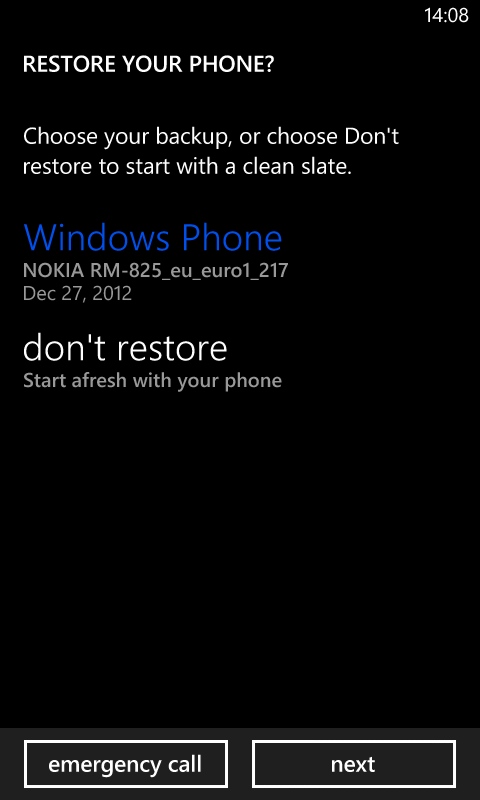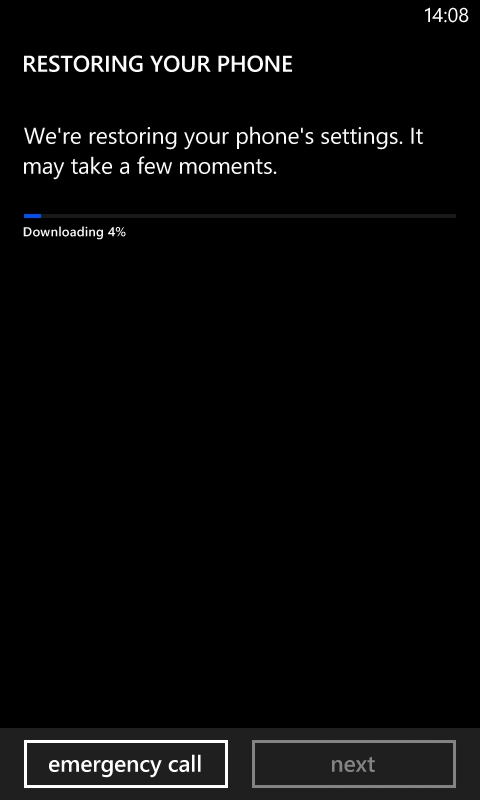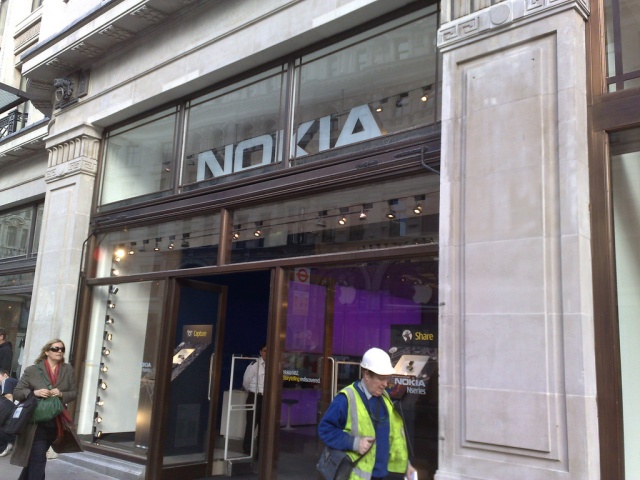Apps, apps, apps.
Or to paraphrase... "developers, developers, developers."
While the Windows Phone Store is making good progress in terms of numbers and high profile releases, it is still not considered a strong enough ecosystem to make it an automatic choice to launch an application. Look at the launch of the BBC Weather mobile application this week - iOS and Android only, with no plans for Windows Phone (or Blackberry). The perception is that a start-up or web service will struggle if it goes for a Windows Phone solution - only covering the two top mobile OS platforms will be taken seriously.
The app story of Windows Phone hasn't really been seen in the last few months, and unless developers (and consumers) are constantly reminded of the capabilities and potential, the groundswell of relevant apps will not happen. Windows Phone cannot survive being an afterthought, it needs to be thought of in the first wave of development.
Backup and Restoring Data
This has to be the biggest one for me. If I replace an iOS device, I hook it into iTunes, or connect to iCloud, and my data is restored. The phone (or tablet) would be as I left it when it was backed up. Progress in any games is restored, any in-app purchases will be where they last were, the desktop will be laid out in the same way...
Contrast to the weak and feeble effort that Windows Phone has. A list of apps is backed up, and these are queued to download from the Windows Phone Store. But not your live tile setup. Or your app data. Or the progress in your games. If you lose your Windows Phone, or the data is wiped out, then it's gone for good.
Windows Phone, after three years, still needs a backup solution. Seriously, how are we still in this situation?


The tight focus on hardware integration
Actually, this is something where Microsoft is almost on a par with Apple. By setting very strict hardware requirements for the Windows Phone platform, they can guarantee a good experience for every user. The only blemish is the lower storage limit of 4GB. As I've discussed previously, this is not enough for a handset. If Microsoft lift this, they still have their hardware regime, but as we've seen with Nokia's range of handsets, it's a regime that can stretch from the low-end handsets right up to the flagship handsets.
Short of building their own handsets, Microsoft are not going to be able to have hardware and software exchanging ideas on the design floor, although the 'special relationship' they have with Nokia is about as close as they can manage to an integrated approach.

The Retail Experiences
The big talk around the US launches of any Windows Phone hardware is always about the network partners, in-store signage, and the promotion that AT&T, Verizon, or T-Mobile, will put in to sell the phone in the launch week. It's a tricky balancing act for Windows Phone.
Apple do play the game as well, but the network of Apple Stores gives the Cupertino based company a huge advantage. Unfortunately Microsoft's stores are few and far between, while Nokia no longer have a portfolio of stores they can call on.

Timely OS updates for Everyone
When Apple get round to releasing iOS 7 to the public, it's going to be available for every iOS user (with compatible hardware) there and then. Right now, every developer who wants to run iOS 7 has access to it.
There was a moment when Microsoft appeared to have this under control, and Windows Phone 7 updates were being delivered over many (but not all) of the world's mobile networks. Not only was that not built on, updates are now even more under the control of the networks. There are practical reasons for this, network testing, multiple models and manufacturers, and staged roll outs for compatibility.
But it still doesn't feel as slick as it could be.
Integrate Bing results into voice searches
Oh - I think we have that one already!
